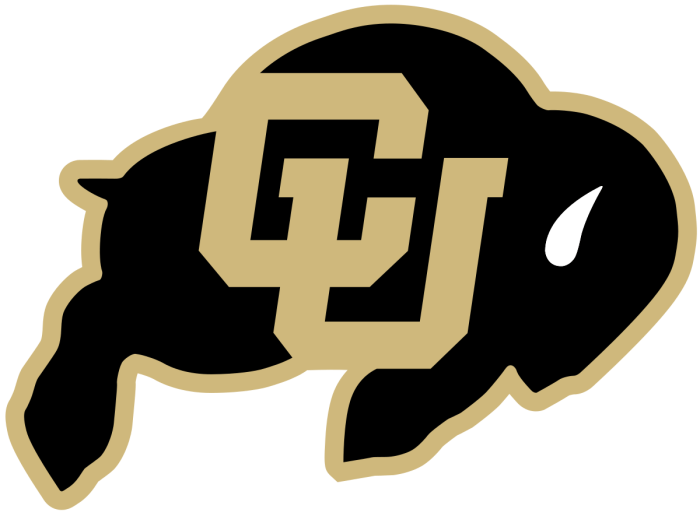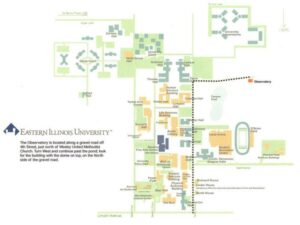Immerse yourself in the captivating world of University of Colorado football, where passion, tradition, and unwavering determination intertwine to create a narrative that is both captivating and inspiring. From its humble beginnings to its current status as a force to be reckoned with, the Buffaloes have etched their name in the annals of college football history, leaving an enduring legacy that continues to resonate with fans and players alike.
Throughout this comprehensive guide, we delve into the rich tapestry of the University of Colorado football program, exploring its triumphs, challenges, and the indomitable spirit that has defined its journey. Prepare to be enthralled as we uncover the team’s storied past, analyze its present trajectory, and speculate on its promising future.
Team History and Achievements

The University of Colorado football team, known as the Buffaloes, has a rich history dating back to 1890. The team has achieved significant success throughout its history, including conference championships and bowl game victories.
The Buffaloes have won 24 conference championships, including 10 in the Big Eight Conference and 14 in the Big 12 Conference. They have also appeared in 23 bowl games, winning 12 of them. Some of the most notable bowl victories include the 1990 National Championship Game and the 2001 Fiesta Bowl.
Notable Players
The Buffaloes have had a number of notable players over the years, including:
- Carl Heinrich (College Football Hall of Fame)
- Byron White (College Football Hall of Fame, Supreme Court Justice)
- John Wooten (College Football Hall of Fame)
- Kordell Stewart (NFL Pro Bowl)
- Chris Brown (NFL Pro Bowl)
Notable Coaches
The Buffaloes have also had a number of notable coaches, including:
- Knute Rockne (College Football Hall of Fame)
- Bill McCartney (College Football Hall of Fame)
- Gary Barnett (Big 12 Coach of the Year)
- Dan Hawkins (Big 12 Coach of the Year)
Current Roster and Coaching Staff
The Colorado Buffaloes football team boasts a diverse and talented roster of players under the guidance of an experienced coaching staff.
Roster
The Buffaloes’ roster features a mix of veteran leadership and promising newcomers. Quarterback J.T. Shrout leads the offense, with running backs Deion Smith and Anthony Hankerson providing a dynamic duo in the backfield. Wide receivers Daniel Arias and Jordyn Tyson are key targets for Shrout, while tight end Brady Russell is a reliable option over the middle.
On the defensive side of the ball, linebacker Josh Chandler-Semedo is a tackling machine, while defensive lineman Terrance Lang is a force to be reckoned with in the trenches. Cornerback Nikko Reed and safety Anthony Lyle lead a secondary that aims to make big plays.
Coaching Staff
Head coach Karl Dorrell enters his fourth season at the helm of the Buffaloes. A former NFL assistant, Dorrell brings a wealth of experience and a commitment to developing young players.
Offensive coordinator Mike Sanford is known for his innovative play-calling, while defensive coordinator Chris Wilson has a reputation for creating aggressive and opportunistic defenses.
Strengths and Weaknesses
The Buffaloes’ strengths lie in their experienced offensive line, led by all-conference center Casey Roddick, and a talented group of skill players. The defense has the potential to be a force, with a deep and athletic secondary.
However, the team faces some challenges. The quarterback position is still a question mark, and the running game needs to improve its consistency. The defense will need to find ways to generate more pressure on opposing quarterbacks.
Overall, the Colorado Buffaloes have the potential to be a competitive team in the Pac-12. With a talented roster and an experienced coaching staff, the Buffaloes are poised to make a run at a bowl game in 2023.
Schedule and Season Outlook

The University of Colorado football team is set to embark on a challenging 2023 campaign. The Buffaloes will face a rigorous schedule that includes several key matchups and potential pitfalls.
The season begins with a home game against the Northern Colorado Bears on September 2nd. Colorado will then travel to Boulder to face the Nebraska Cornhuskers on September 9th. This will be a key early-season test for the Buffaloes, as Nebraska is a perennial contender in the Big Ten Conference.
Colorado will then return home to face the Air Force Falcons on September 16th. The Falcons are a tough opponent, and this game will be a good test of the Buffaloes’ defense.
Key Matchups
- September 9th: Colorado vs. Nebraska
- September 16th: Colorado vs. Air Force
- October 7th: Colorado vs. Arizona
- October 21st: Colorado vs. Oregon
- November 4th: Colorado vs. Utah
Potential Challenges
- Tough Schedule: Colorado’s schedule is one of the toughest in the Pac-12 Conference. The Buffaloes will face several ranked opponents, including Oregon and Utah.
- New Coaching Staff: Colorado has a new coaching staff led by head coach Deion Sanders. It will take some time for the new staff to implement its system and build chemistry with the players.
- Lack of Depth: Colorado has a relatively thin roster, especially on the defensive side of the ball. Injuries could be a major problem for the Buffaloes this season.
Season Outlook
The Buffaloes are a young team with a lot of potential. However, they will need to overcome some challenges in order to be successful in 2023. If they can stay healthy and play to their potential, they could be a surprise team in the Pac-12 Conference.
Fan Base and Culture
The University of Colorado football team boasts a passionate and dedicated fan base that has been a cornerstone of the program’s success throughout its history. Known as the “Buff Nation,” these fans are renowned for their unwavering support and enthusiastic game-day atmosphere.
The Buff Nation’s traditions and rituals create a unique and electric atmosphere at Folsom Field on game days. The “Buff Bus” transports fans from Denver to Boulder, creating a festive pre-game tailgate party. The team’s entrance to the field is accompanied by the traditional “Hey Baby” cheer, led by the Colorado marching band.
Game-Day Atmosphere
The game-day atmosphere at Folsom Field is one of the most intimidating and exciting in college football. The crowd is known for its passionate support, creating a deafening roar that can shake the stadium. The team’s iconic black and gold uniforms, coupled with the sea of yellow “Buff” jerseys in the stands, make for a visually stunning spectacle.
Impact on Team Success
The Buff Nation’s unwavering support has played a significant role in the team’s success over the years. The passionate fan base provides a boost to the players’ morale, creating an intimidating atmosphere for opposing teams. The crowd’s energy and enthusiasm can inspire the team to overcome adversity and achieve great things.
Impact on the University and Community

The University of Colorado football team serves as a beacon of pride and accomplishment for both the university and the surrounding community. Its success on the field has a profound impact on various aspects of campus life and the local economy.
One of the most significant contributions of the football team is its ability to generate revenue. The team’s home games attract tens of thousands of fans, bringing in millions of dollars in ticket sales, concessions, and merchandise. This revenue helps support the university’s academic programs, athletic facilities, and other campus initiatives.
Promoting School Spirit
Beyond its financial contributions, the football team plays a crucial role in fostering school spirit and a sense of community among students, alumni, and the broader Boulder community. Game days are a time for people to come together, cheer for their team, and celebrate their shared university pride.
Economic and Social Benefits
The success of the football team also has a positive impact on the local economy. Hotels, restaurants, and other businesses in Boulder benefit from the influx of fans on game weekends. Additionally, the team’s success helps attract and retain students, faculty, and staff to the university, further contributing to the economic and social vitality of the community.
Essential FAQs
When was the University of Colorado football team founded?
1890
What is the nickname of the University of Colorado football team?
Buffaloes
Who is the current head coach of the University of Colorado football team?
Karl Dorrell
What is the capacity of Folsom Field, the home stadium of the University of Colorado football team?
50,183




